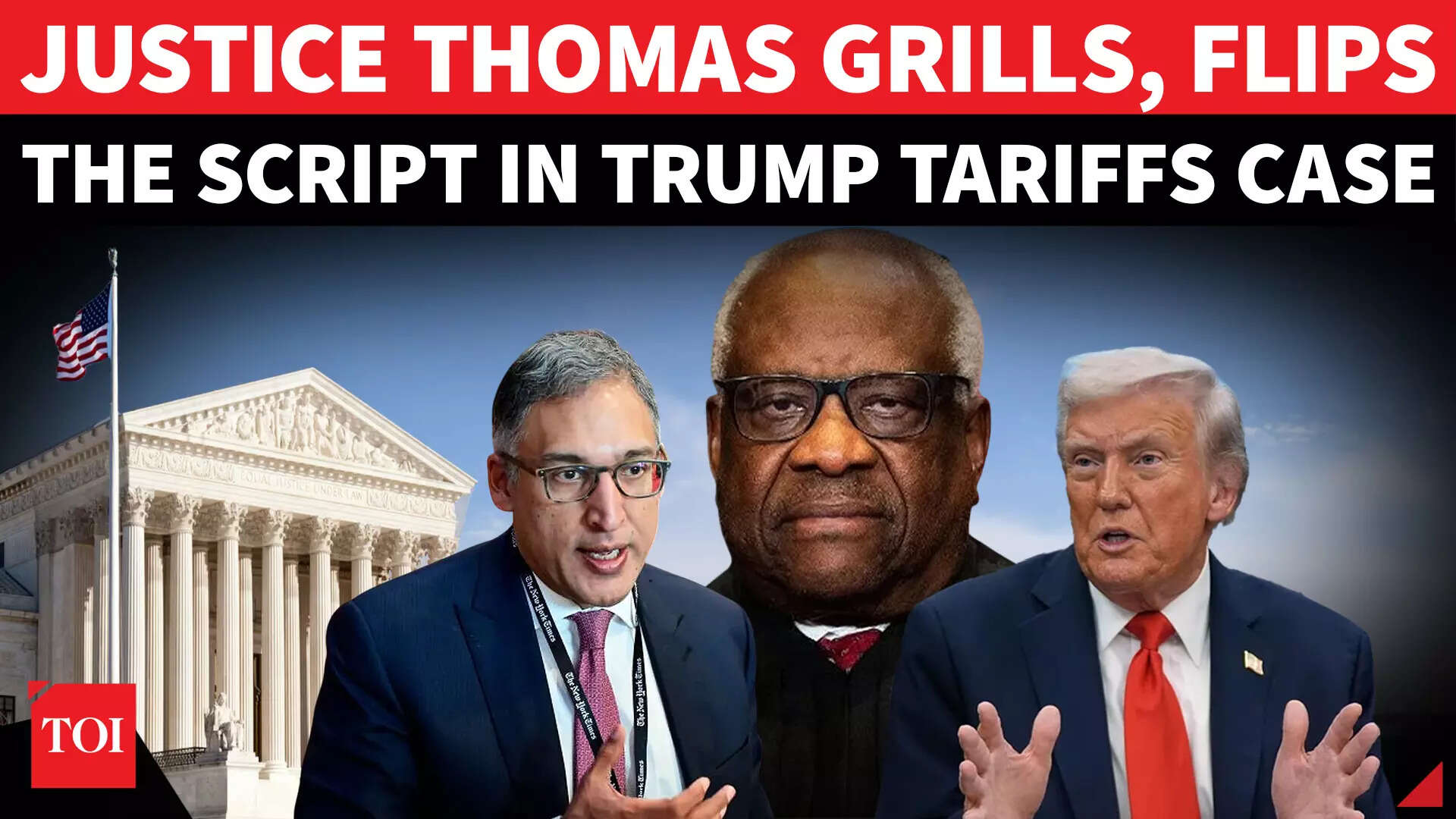Politics
Supreme Court Examines Trump’s Tariff Authority Under IEEPA

The U.S. Supreme Court is currently deliberating a significant case that could reshape the scope of presidential authority regarding trade. Central to the case is whether the International Emergency Economic Powers Act (IEEPA) provided former President Donald Trump with the legal power to impose extensive tariffs without the consent of Congress. This case has drawn considerable attention due to its implications for the balance of power within the U.S. government.
Three lower courts have previously deemed Trump’s tariff actions illegal, asserting that they infringed upon the constitutional doctrine of separation of powers. The courts argued that the imposition of tariffs is a legislative function that should reside with Congress, not the executive branch. The Supreme Court’s decision could set a precedent for future administrations regarding the extent to which a president can act unilaterally in matters of trade and economic policy.
Legal Arguments and Implications
During the hearings, Justice Clarence Thomas posed challenging questions to the Democratic lawyer representing the opposition, probbing the implications of allowing such presidential powers. The arguments presented highlight a critical debate over the limits of executive authority in a democratic system. If the Supreme Court rules in favor of Trump’s actions, it could empower future presidents to take similar actions without legislative oversight, fundamentally altering the landscape of U.S. trade policy.
The IEEPA has historically been used to address emergencies that threaten national security, allowing the president to regulate foreign commerce in response to such crises. However, critics of Trump’s tariffs argue that his rationale for imposing tariffs did not meet the legal standards outlined in the act. They contend that utilizing this act for broad economic measures undermines the legislative branch’s role.
Potential Outcomes and Reactions
Legal experts suggest that a ruling in favor of Trump could embolden future presidents to enact economic measures with limited checks from Congress. Such a move would raise significant concerns about executive overreach and could lead to a legislative push for reforms aimed at clarifying the boundaries of presidential authority under the IEEPA.
Conversely, a ruling against Trump would reaffirm the principle of legislative oversight, ensuring Congress retains its constitutionally mandated role in regulating trade. The implications of this case extend beyond tariffs, as it touches on the fundamental structure of governance in the United States.
As the Supreme Court deliberates, the nation watches closely, recognizing that the outcome could redefine the parameters of presidential power, impacting both domestic and international trade policies for years to come.
-

 World5 months ago
World5 months agoSBI Announces QIP Floor Price at ₹811.05 Per Share
-

 Lifestyle5 months ago
Lifestyle5 months agoCept Unveils ₹3.1 Crore Urban Mobility Plan for Sustainable Growth
-

 Science4 months ago
Science4 months agoNew Blood Group Discovered in South Indian Woman at Rotary Centre
-

 World5 months ago
World5 months agoTorrential Rains Cause Flash Flooding in New York and New Jersey
-

 Top Stories5 months ago
Top Stories5 months agoKonkani Cultural Organisation to Host Pearl Jubilee in Abu Dhabi
-

 Sports4 months ago
Sports4 months agoBroad Advocates for Bowling Change Ahead of Final Test Against India
-

 Science5 months ago
Science5 months agoNothing Headphone 1 Review: A Bold Contender in Audio Design
-

 Top Stories5 months ago
Top Stories5 months agoAir India Crash Investigation Highlights Boeing Fuel Switch Concerns
-

 Business5 months ago
Business5 months agoIndian Stock Market Rebounds: Sensex and Nifty Rise After Four-Day Decline
-

 Sports4 months ago
Sports4 months agoCristian Totti Retires at 19: Pressure of Fame Takes Toll
-

 Politics5 months ago
Politics5 months agoAbandoned Doberman Finds New Home After Journey to Prague
-

 Top Stories5 months ago
Top Stories5 months agoPatna Bank Manager Abhishek Varun Found Dead in Well









